Cock’s Spur
Scientific name: Erythrina eggersii
The common names for Erythrina eggersii include Eggers’ Coral Tree, Eggers’ Coralbean, Cockspur, Mountain Immortelle, Bois Immortelle, and Cachimbo. It is also referred to as simply Coral Tree, especially in horticultural contexts
POWO Status: Tree
IUCN Red List threat level: Endangered
GPS Location: 17° 42′ 59.34″ N, 64° 49′ 40.89″ W
Conservation Garden
GPS Location: 17° 42′ 59.34″ N, 64° 49′ 40.89″ W
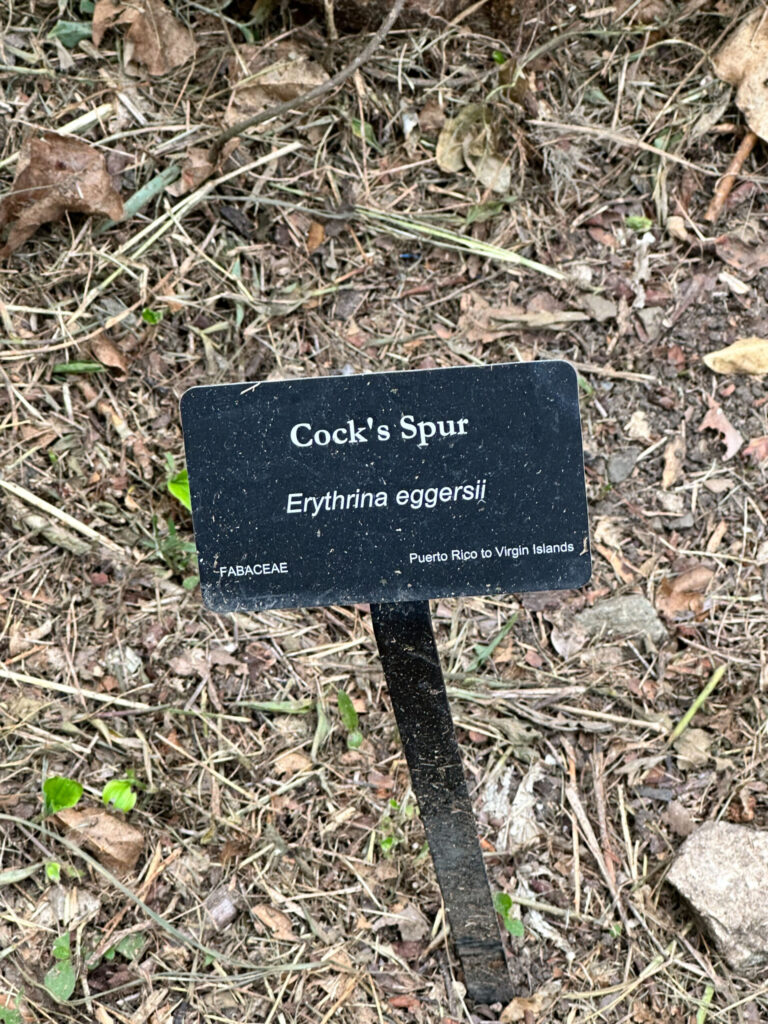
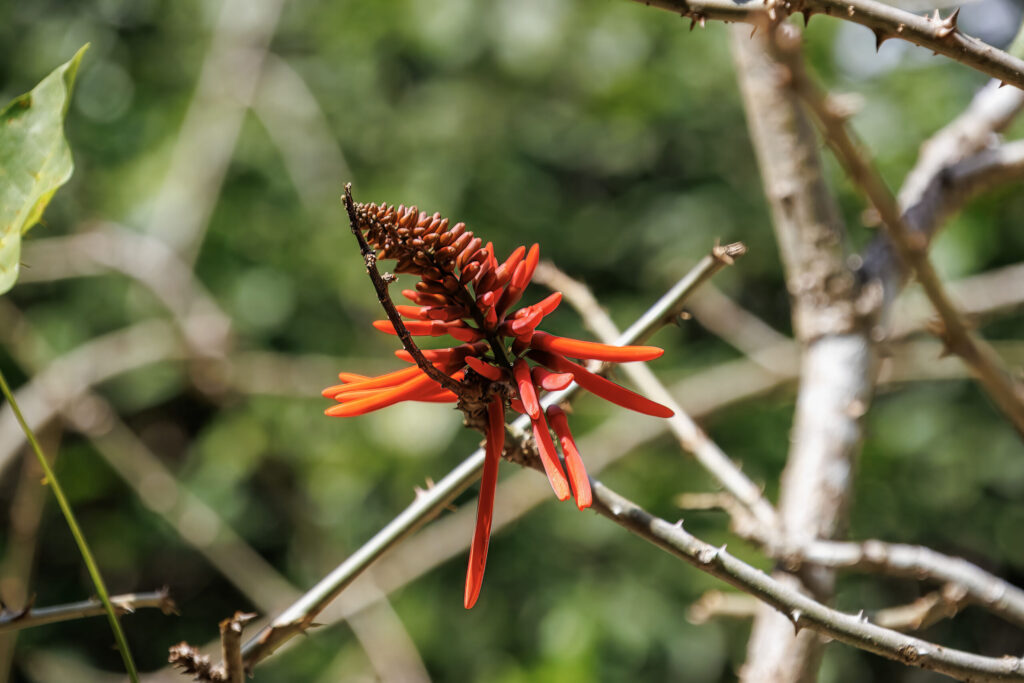
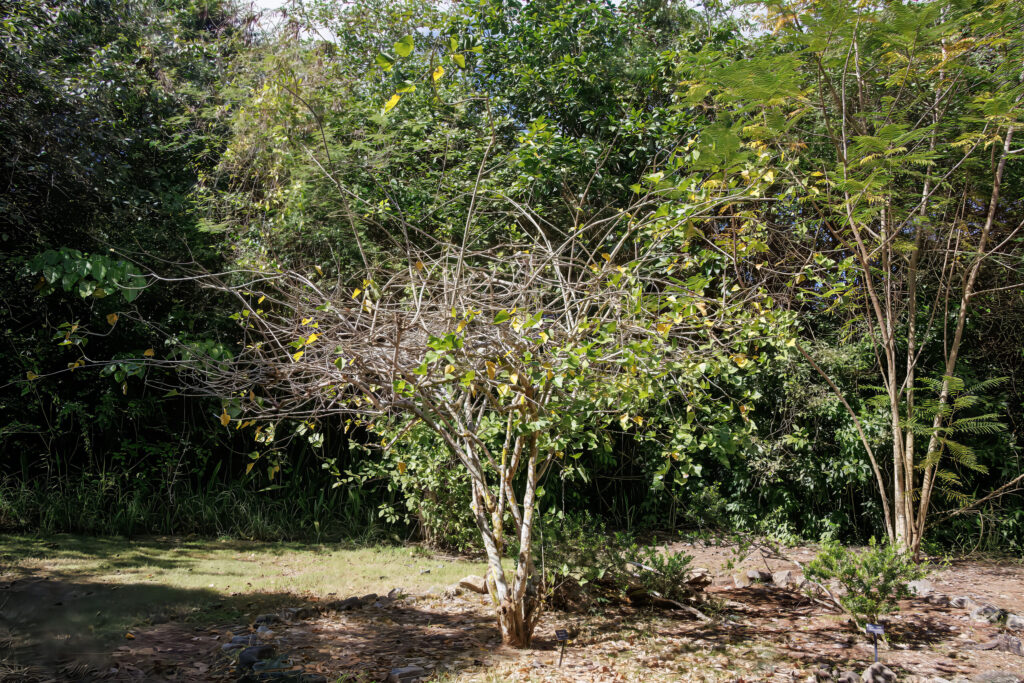
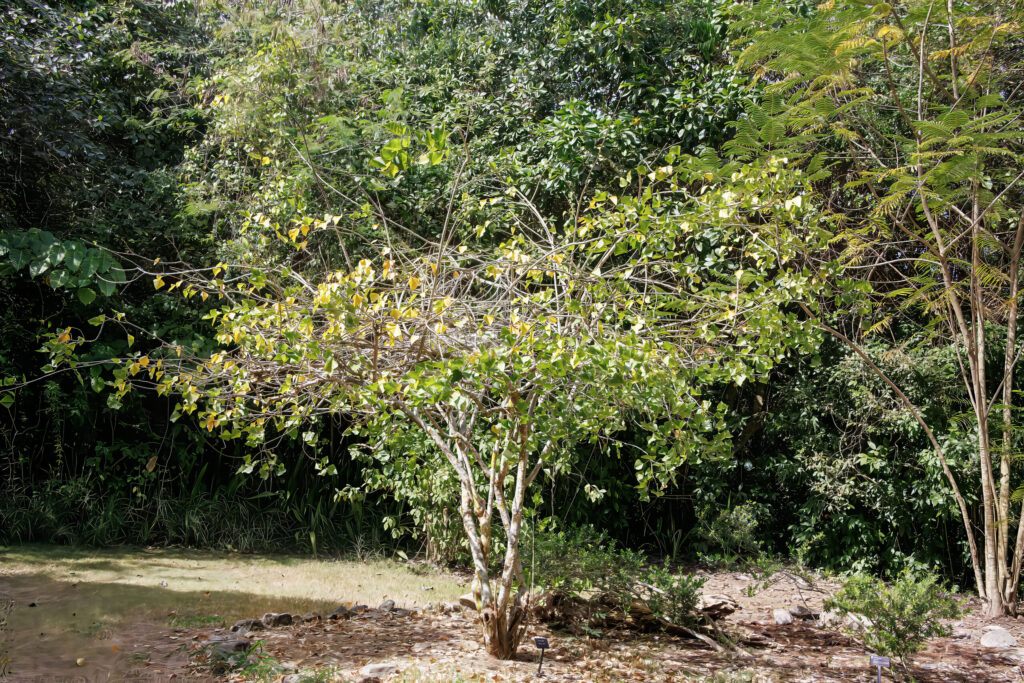
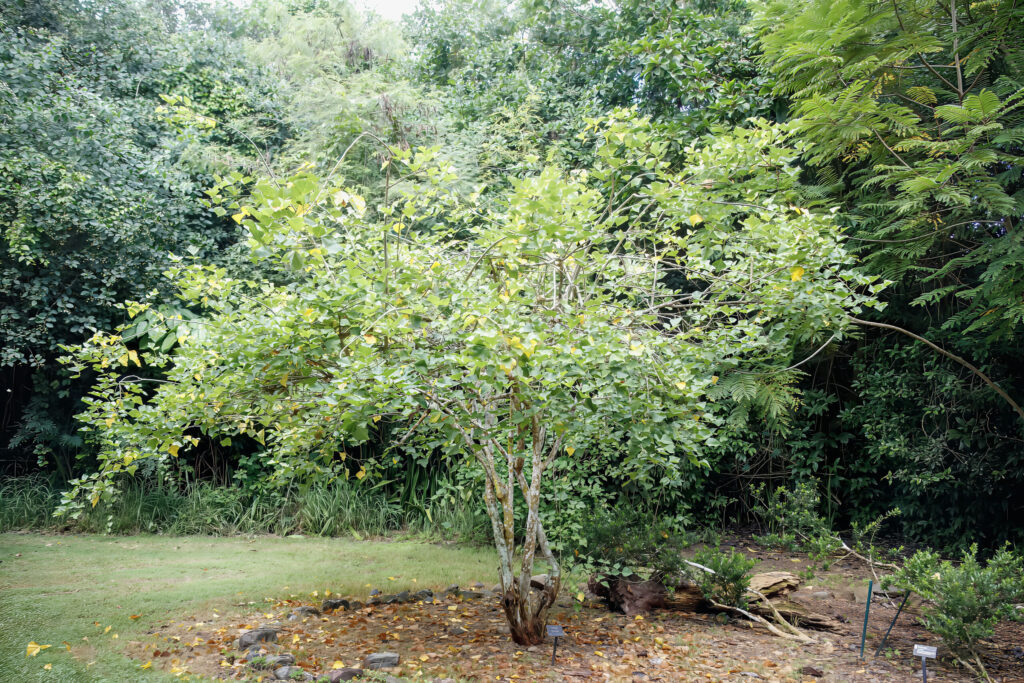
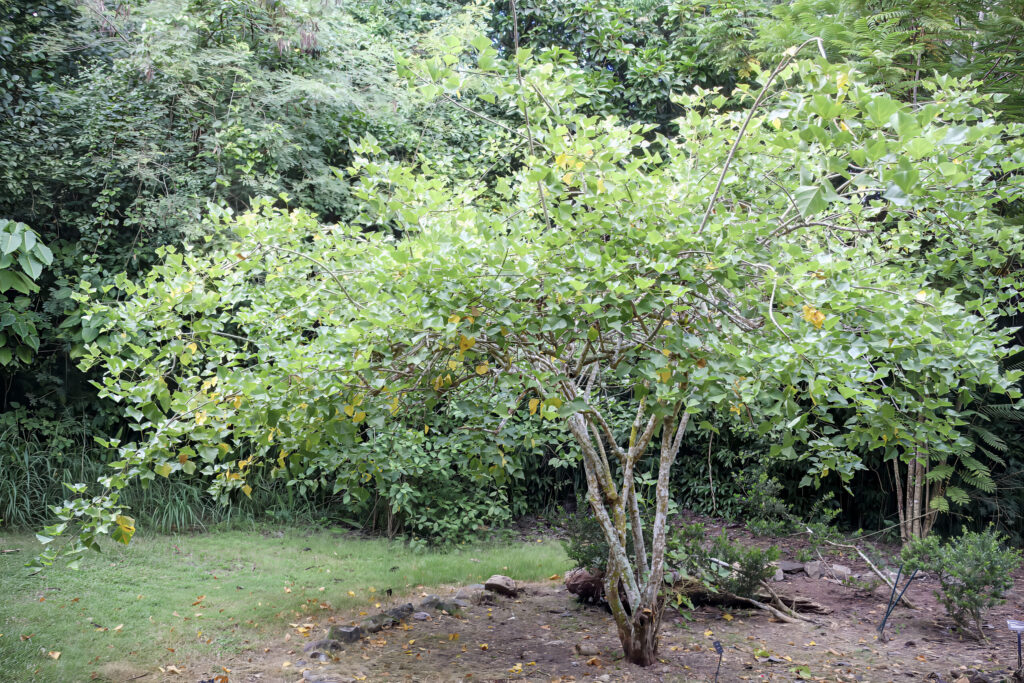
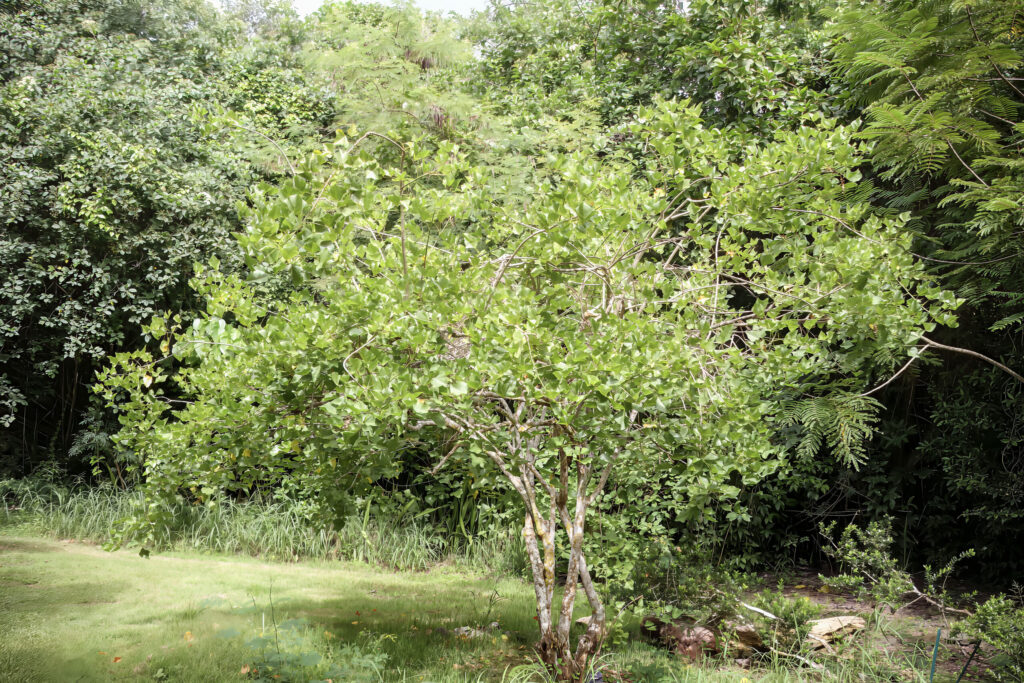
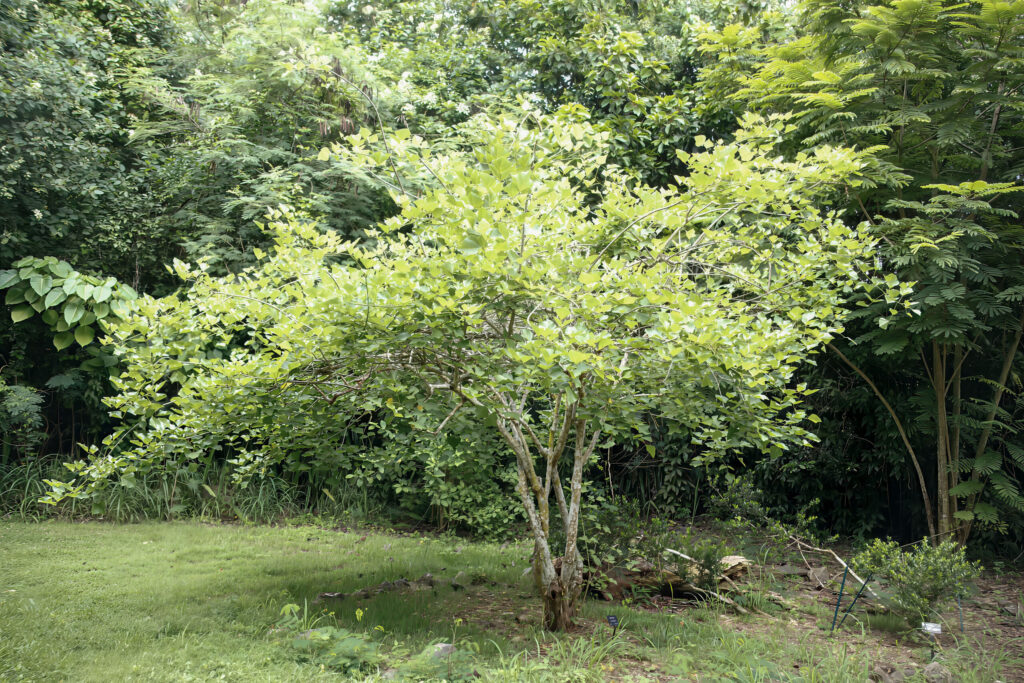
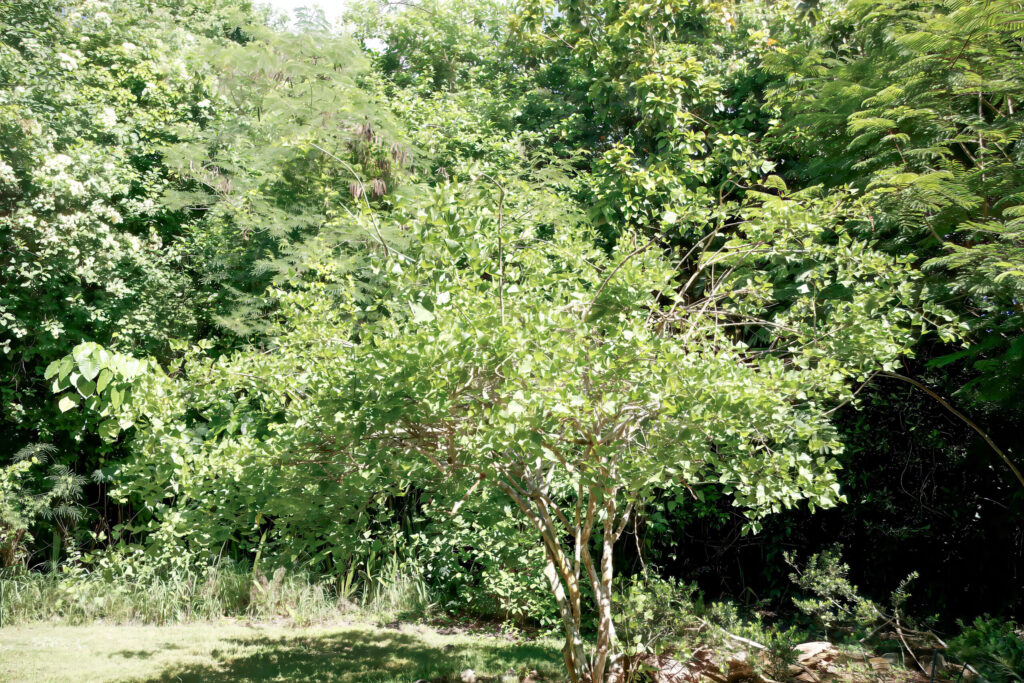
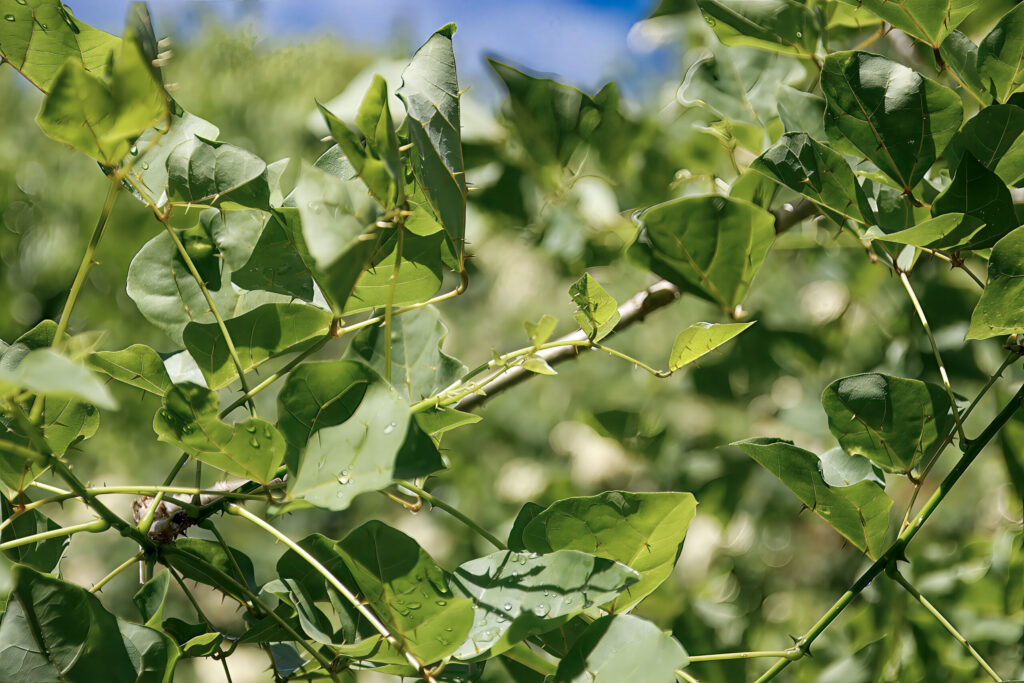
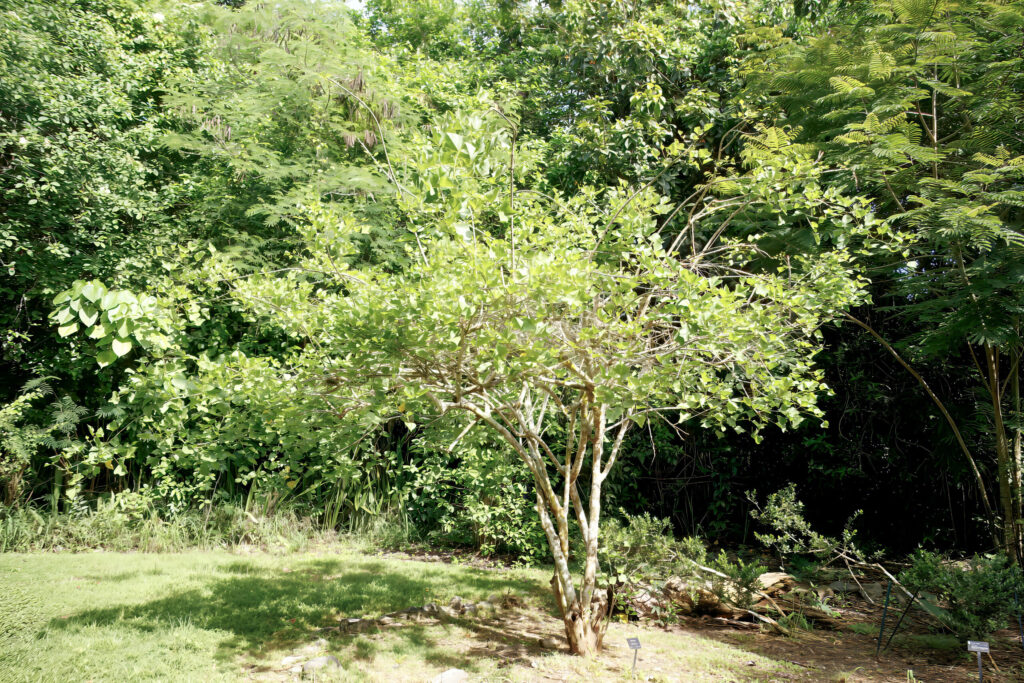
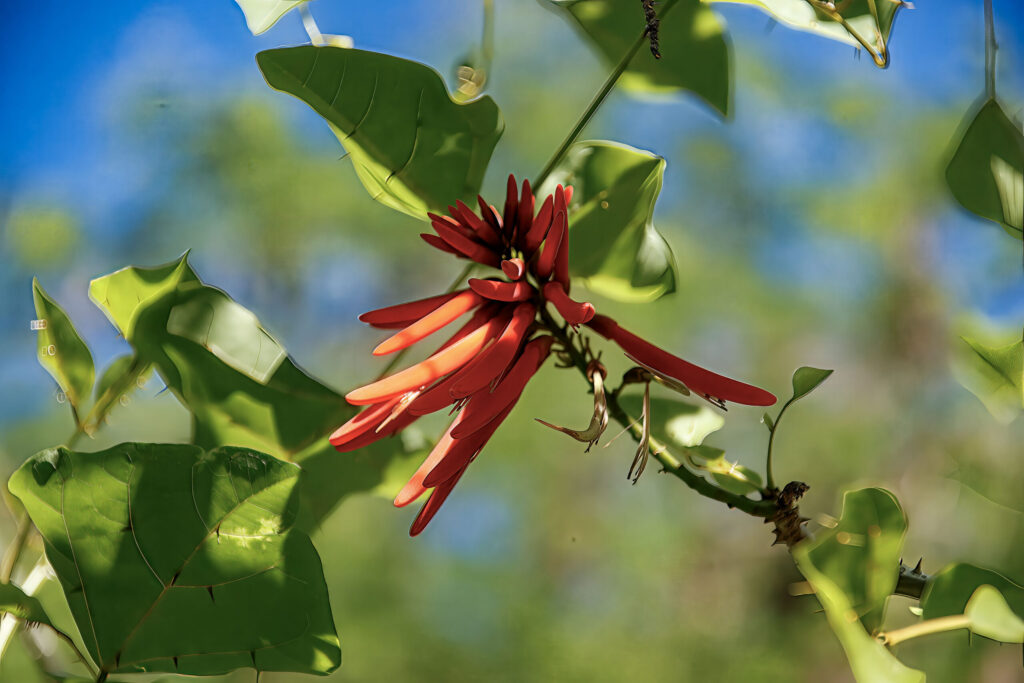
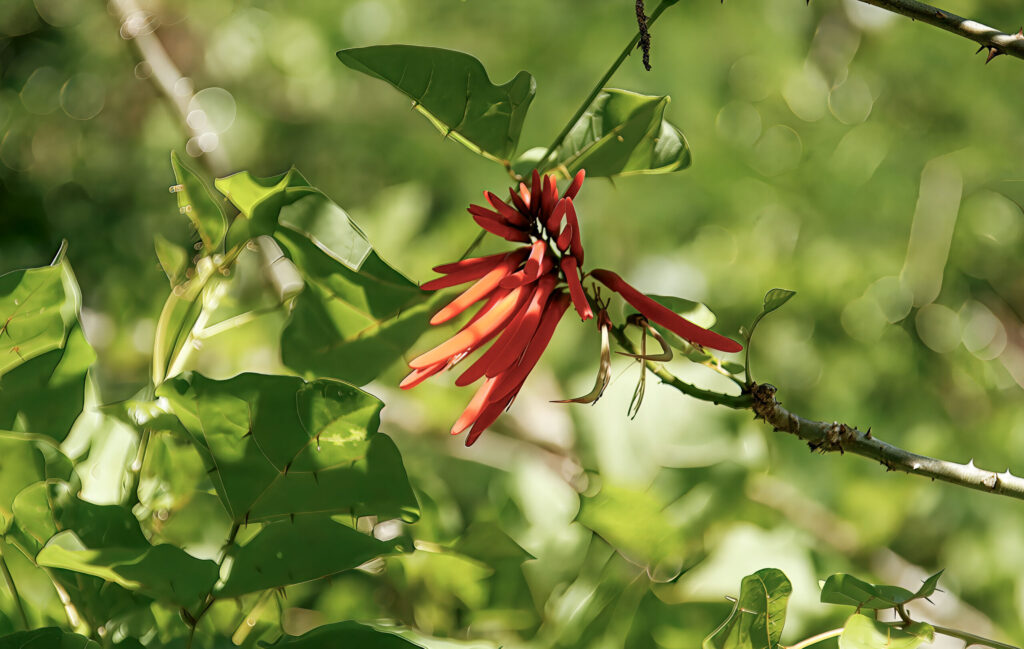
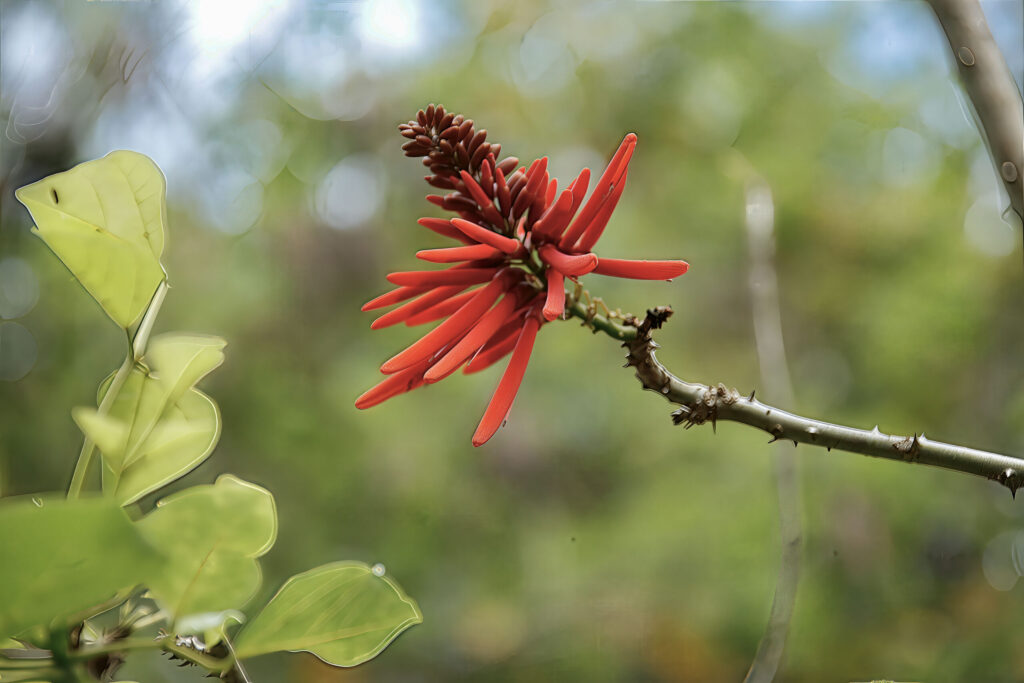
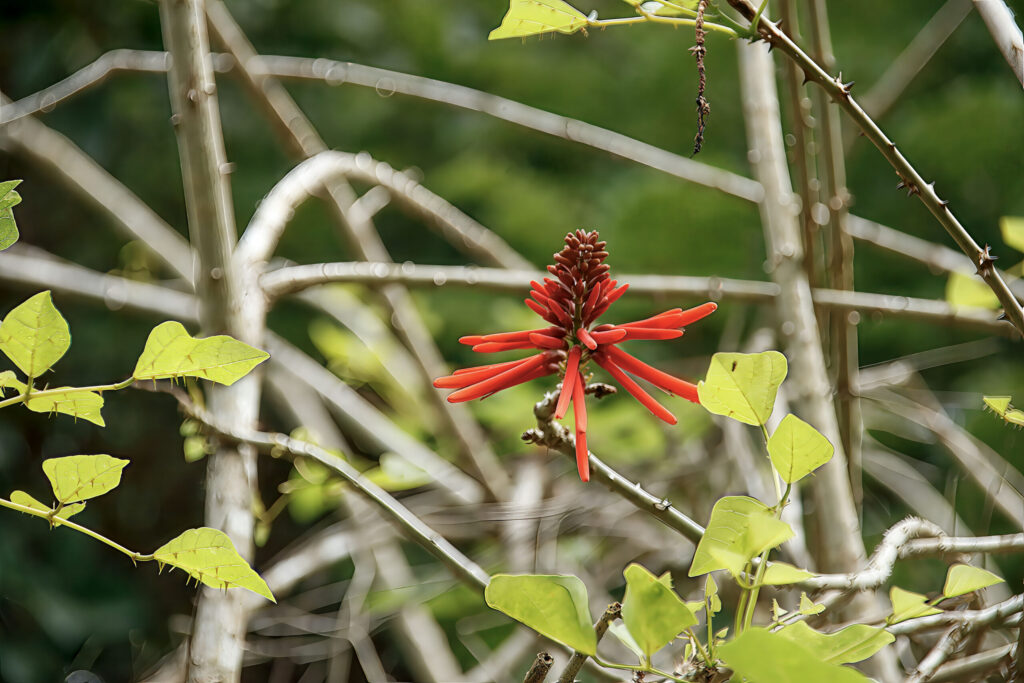
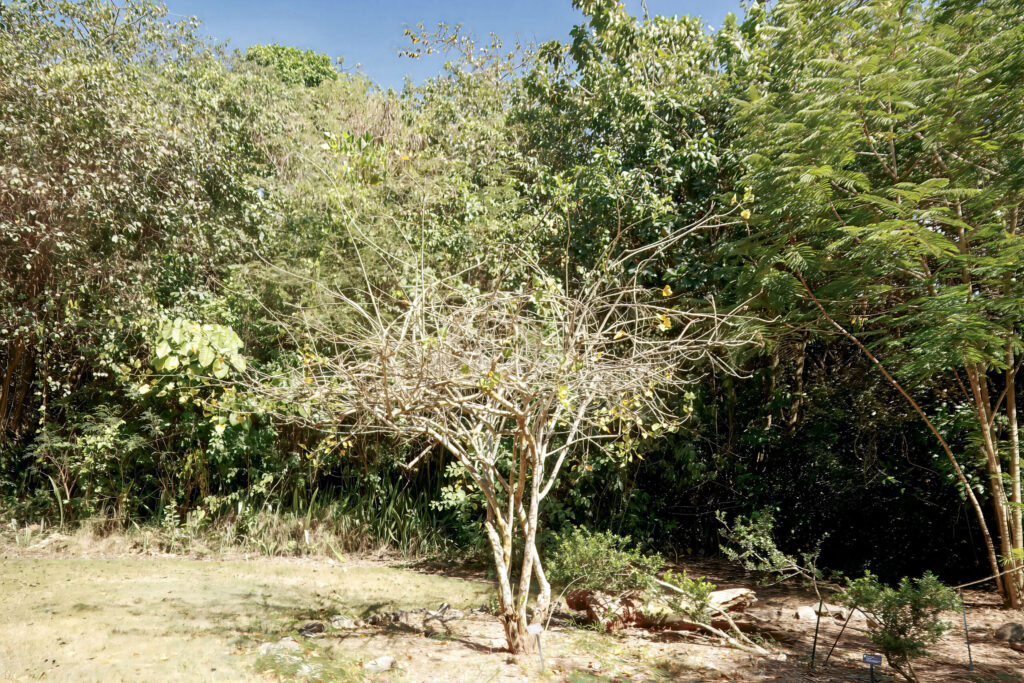
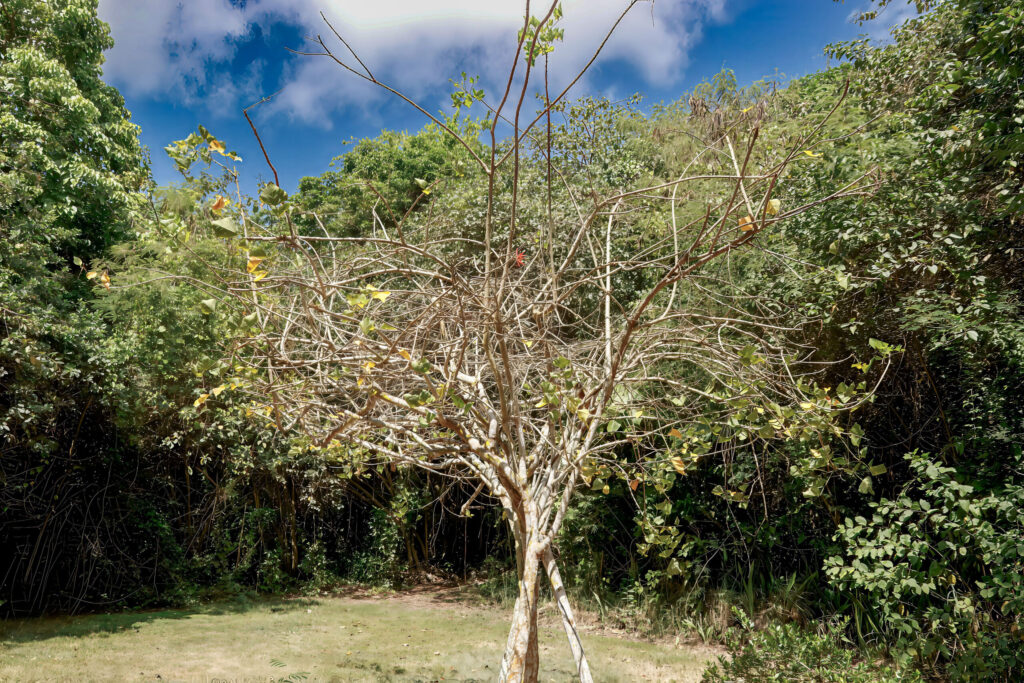
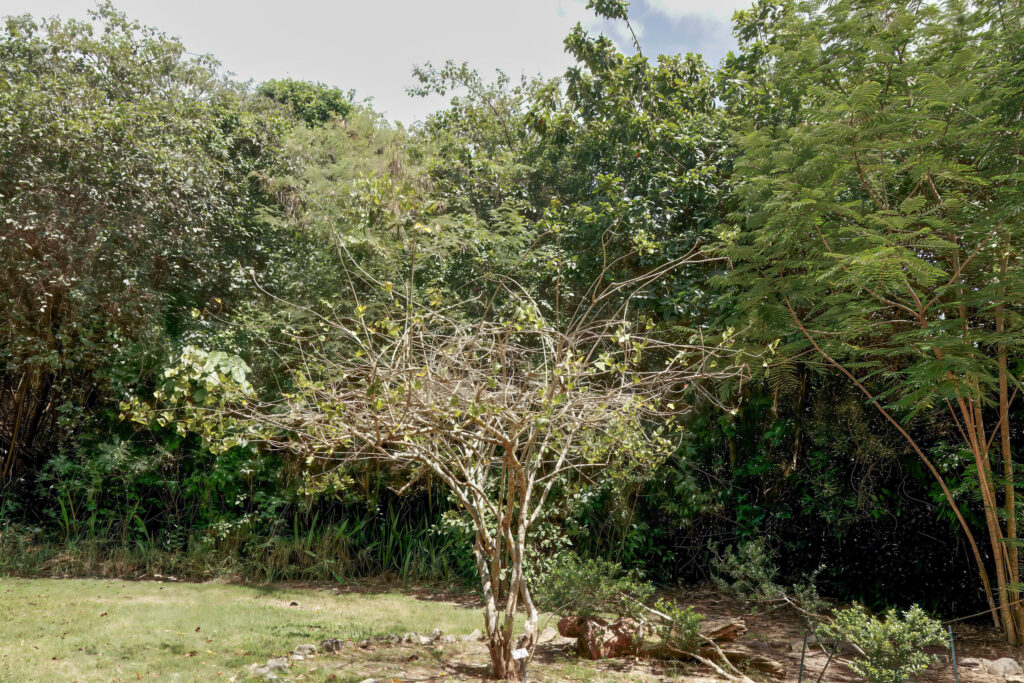
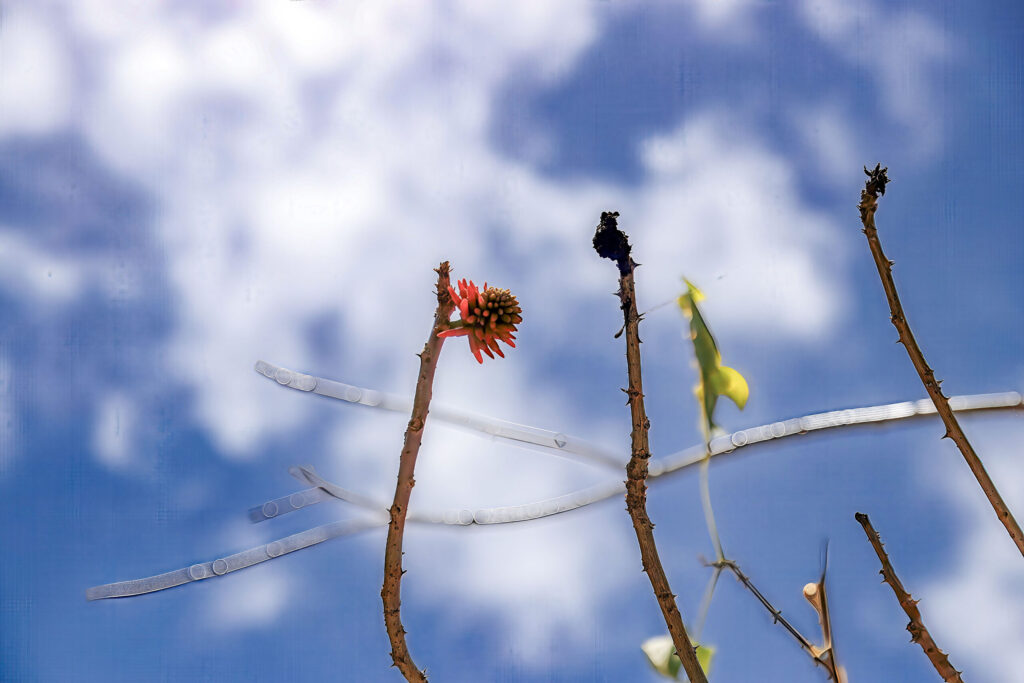
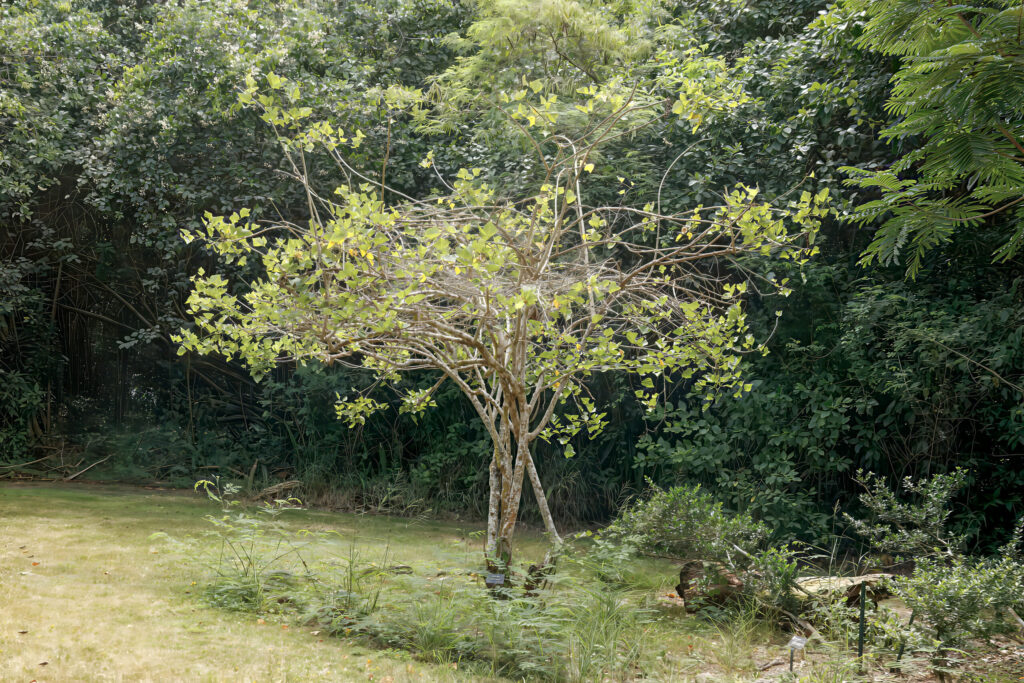
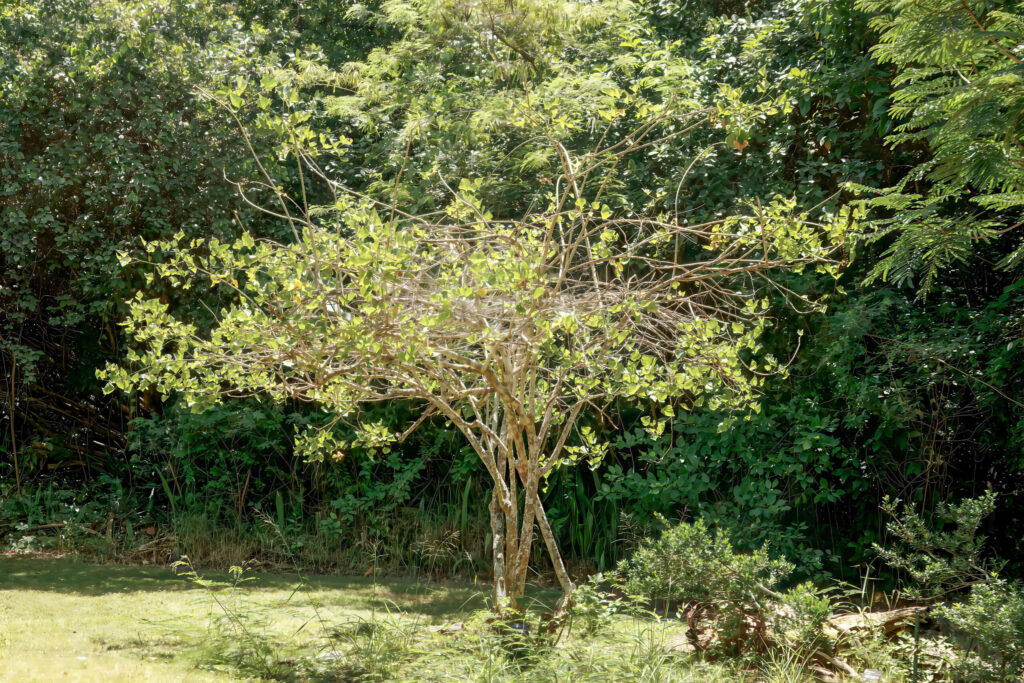
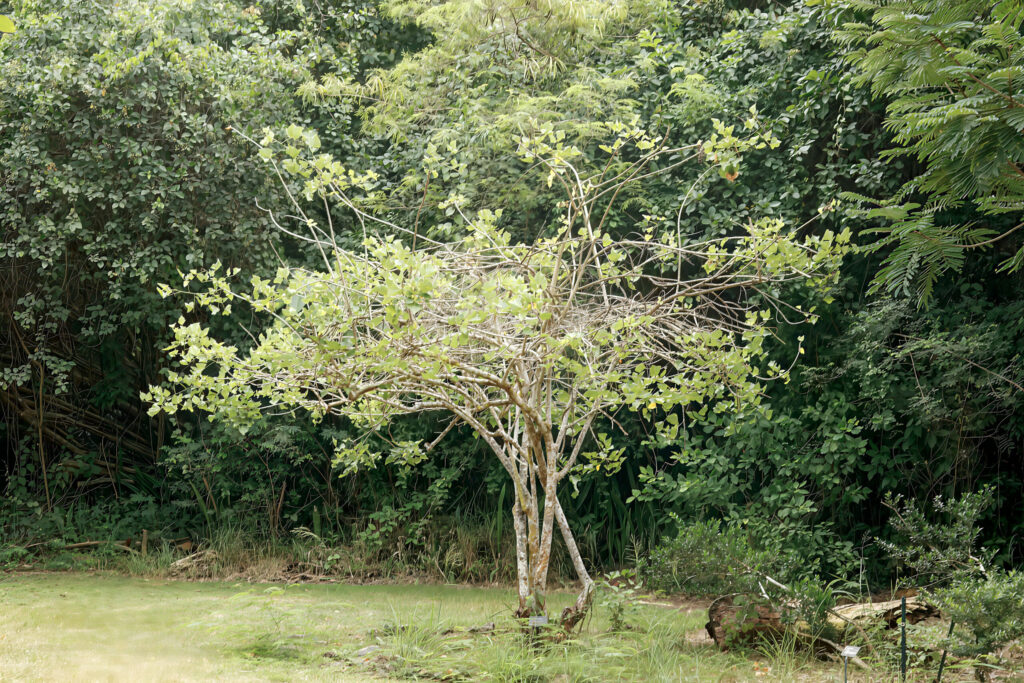
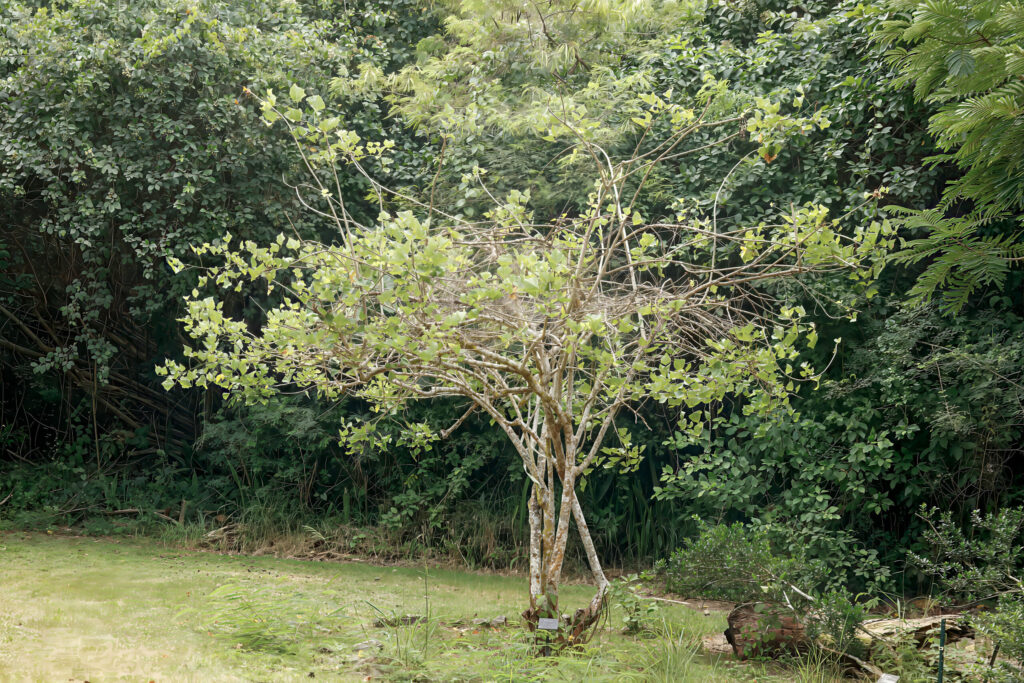
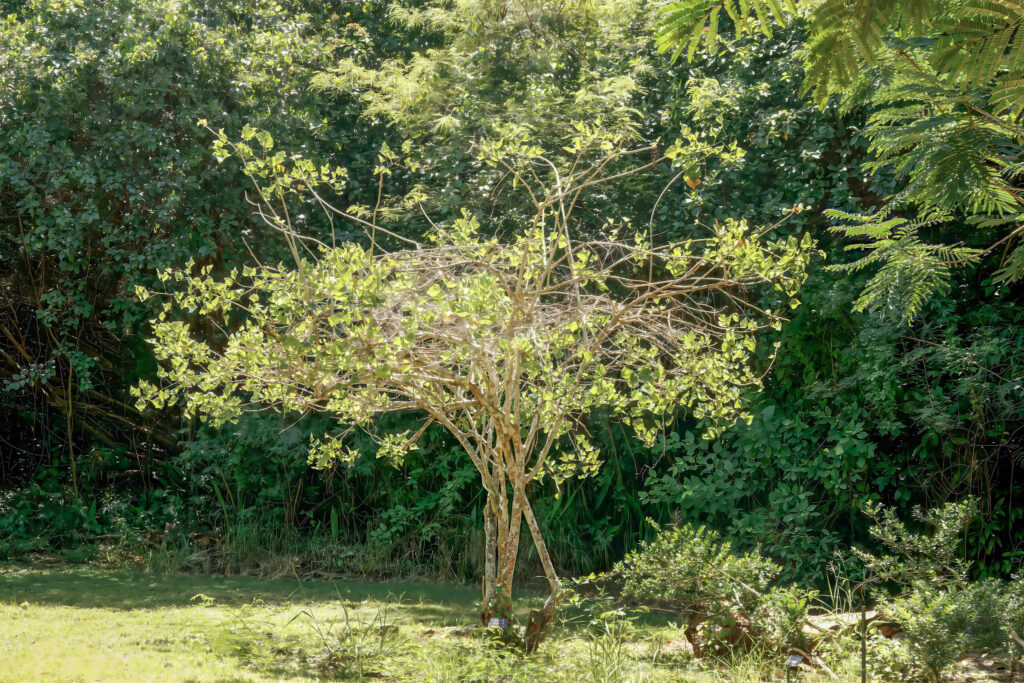
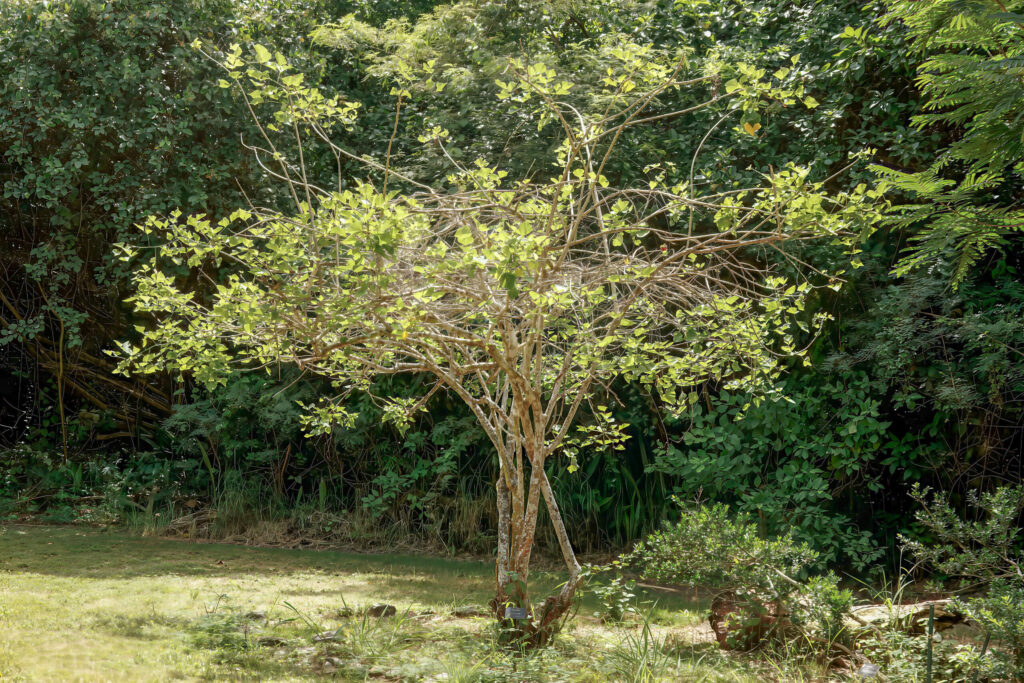






















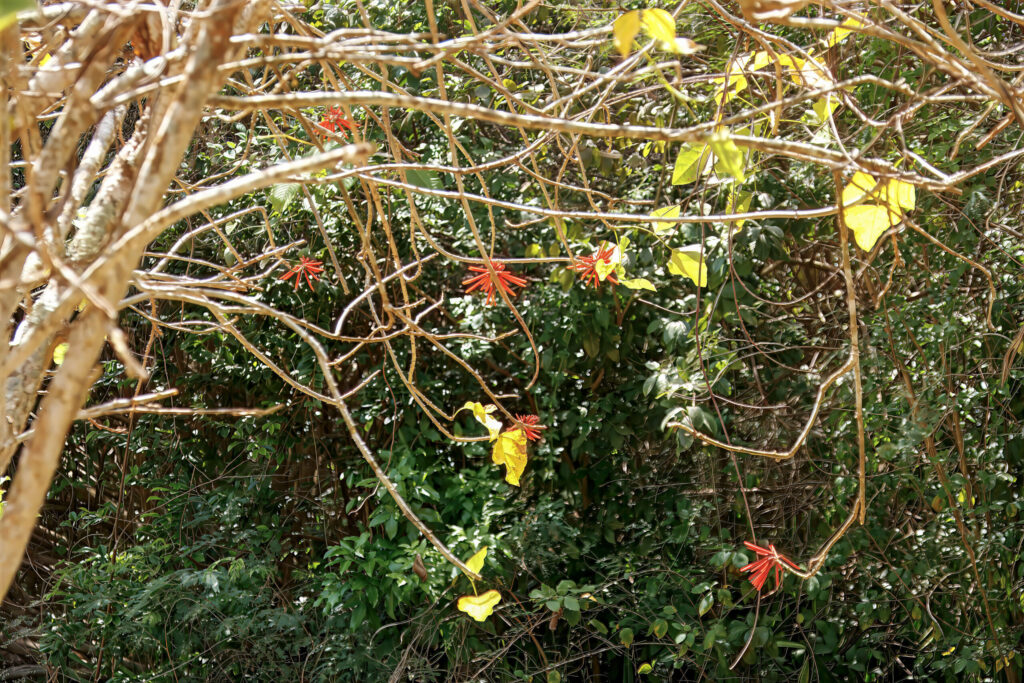
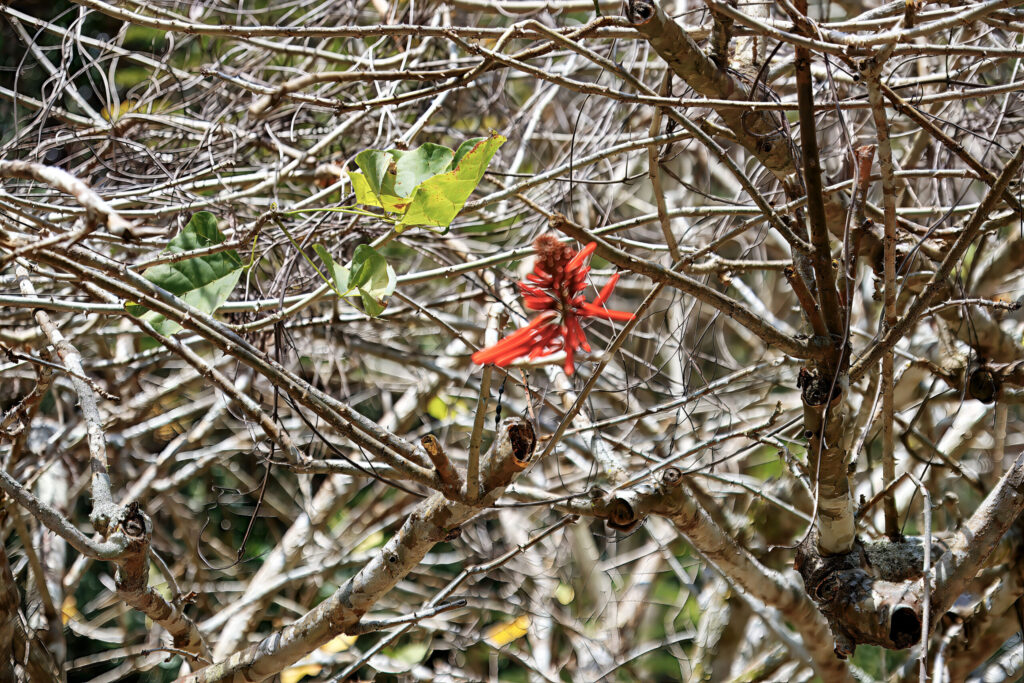

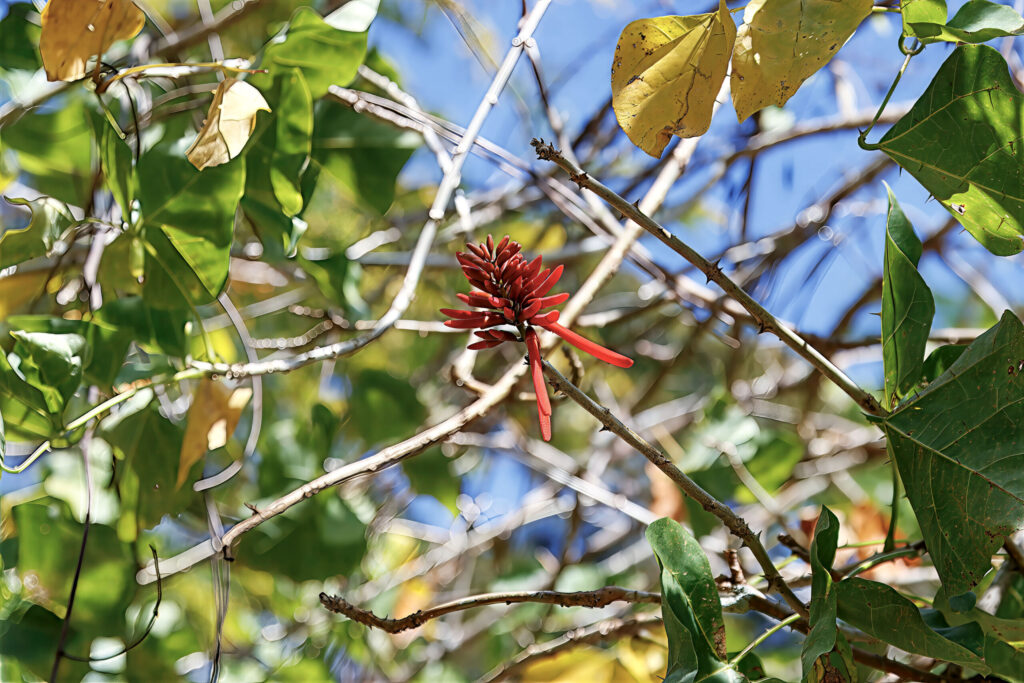







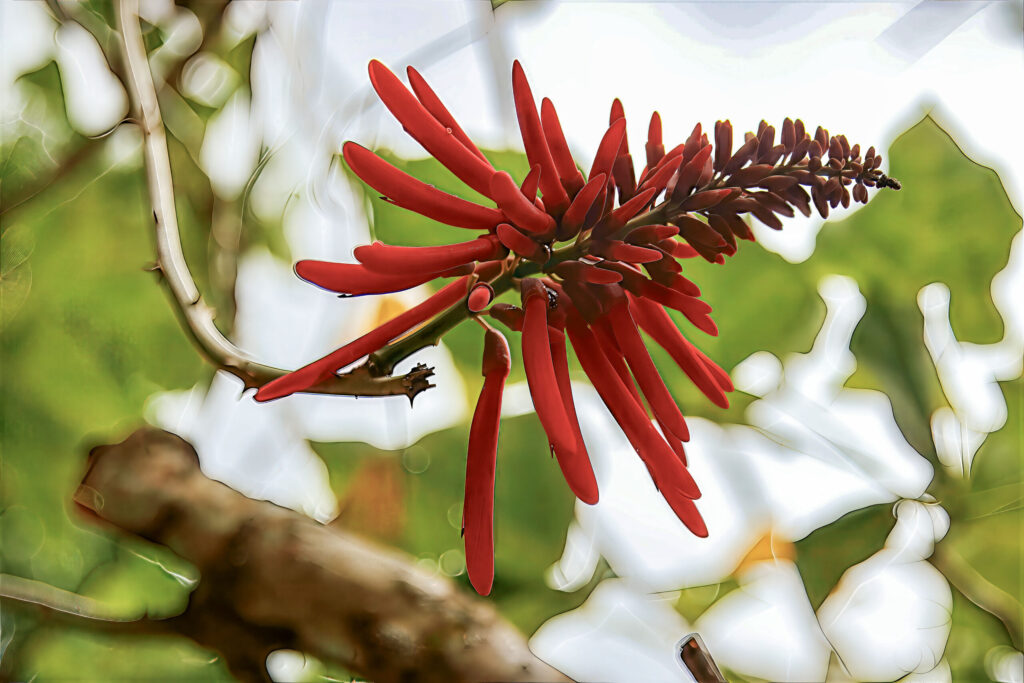
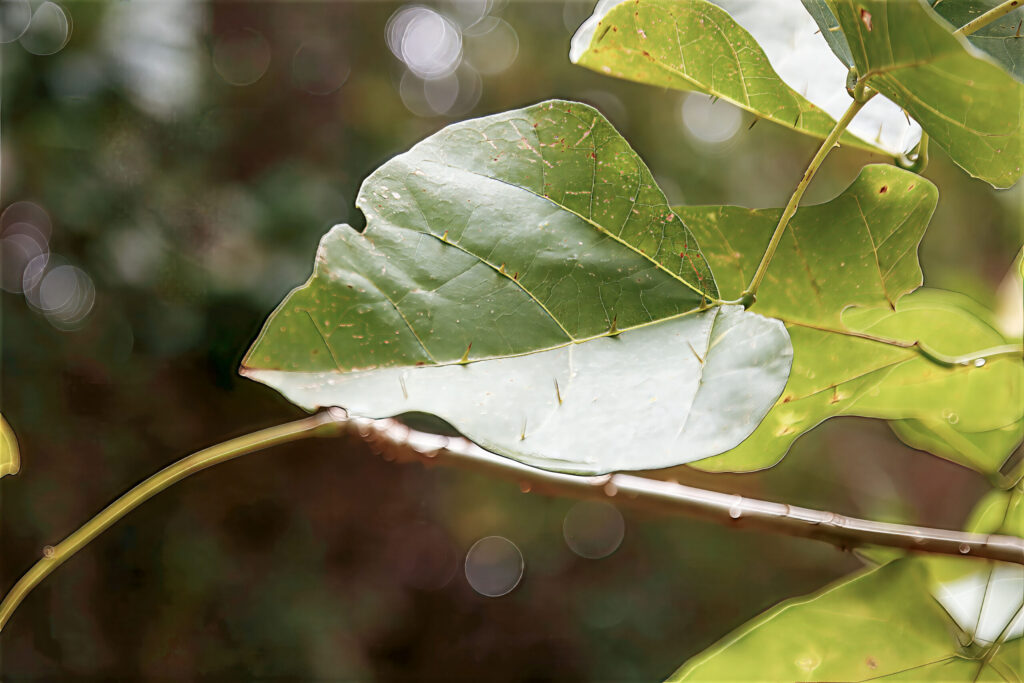

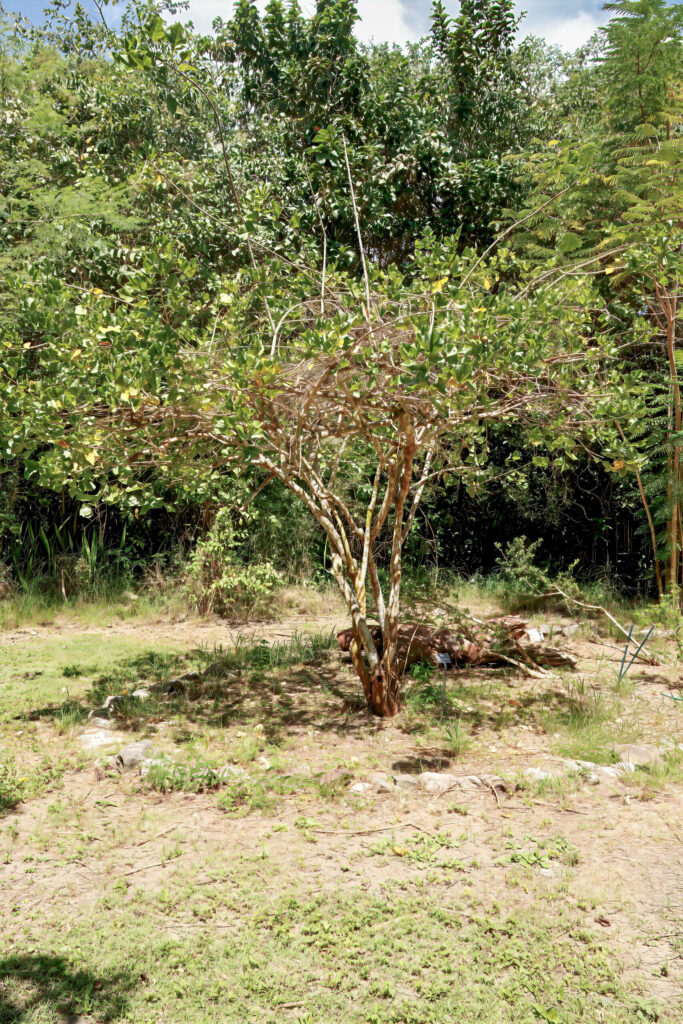
Medicinal Uses
While many species within the Erythrina genus have various traditional medicinal uses, there is a lack of specific information regarding the traditional medicinal uses of Erythrina eggersii itself in the provided search results.
Observations:
Phenological Markers – Eggers’ Coral Tree (Erythrina eggersii)
1. Leaf Behavior
This species is deciduous, shedding its trifoliate leaves during the dry season, particularly from January through March in St. Croix.
- Leaves consist of three broad leaflets, often with a soft, velvety texture when young.
- A pronounced leaf flush occurs after the first rains or just prior to flowering.
Observation Tips:
- Track complete canopy loss, especially in peak dry season.
- Watch for flushes of new, tender leaves, typically beginning March–April.
2. Flowering
The tree produces brilliant scarlet to coral-red flowers, arranged in dense terminal racemes (elongated clusters at branch tips).
- Flowering is most prominent just before or during early leaf flush, often when branches are still bare.
- Blooming typically occurs from March to May.
- Flowers are highly attractive to hummingbirds and bees.
Observation Tips:
- Document first bloom, peak bloom, and bloom fade.
- Capture images of bare-branch flowering—a signature visual.
- Note hummingbird activity during morning hours.
3. Fruiting
Fruits are elongated, cylindrical seed pods, containing dark seeds separated by slight constrictions (giving a “beads-on-a-string” appearance).
- Pods mature in late spring to summer and may persist on the tree after drying.
- Seed pods split open to release seeds by late summer.
Observation Tips:
- Record pod formation, drying, and dehiscence (splitting).
- Note seed fall zones and potential germination sites.
4. Growth & Conservation Note
- Erythrina eggersii is listed as endangered due to habitat loss and limited distribution.
- It often grows in coastal scrub, dry forests, or rocky outcrops, requiring good drainage and sunlight.
- Monitoring phenology contributes directly to conservation efforts and seed viability studies.
5. Seasonal Pattern (St. Croix)
- Jan–Mar: Leaf drop
- Mar–May: Peak flowering and early leaf flush
- May–Jul: Fruiting
- Jul–Oct: Seed dispersal and full canopy
- Nov–Dec: Canopy maintenance or thinning depending on rainfall
